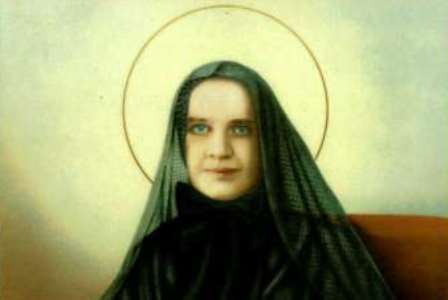
WTI Magazine #63 2015 June, 27
Author : Giovanni Verde Translation by:
The first American citizen proclaimed saint was born in Italy. Francesca Xavier Cabrini was born in Sant'Angelo Lodigiano on July 15, 1850. At 24 she decides to devote her life to God and becomes a missionary. In 1880 Francesca founds the Congregation of the Congregazione delle Missionarie del Sacro Cuore di Gesù (Missionaries of the Sacred Heart of Jesus), adding to her name the surname Xavier, in honor of St. Francis Xavier, missionary in the Far East.
In 1889 Francesca decides to go to the United States, to assist the Italian immigrants who are leaving Italy in search for a new life. Francesca does not stop on the east coast, but continues her work also in the hinterland. She learns Spanish and English, converting several tribes to which no white man or woman had ever approached.
Her activity starts in Little Italy, the poor neighborhood of the Italians in New York: infant mortality is high, large families live in one room, children use to beg or do shoeshine to earn a few cents, while many girls work all day in factories. Francesca and the nuns that accompany her visit the poorest people, discovering a reality of suffering and pain.
Her dream is to open religious institutions to accommodate girls, giving them the opportunity to receive proper education and where to assist the many orphans of Little Italy. Francesca constantly travels between the US and Europe to establish or consolidate a number of missions primarily designed to assist the Italian immigrants: schools, kindergartens, hospitals. The countries that see a rapid uptake of her institutions are the United US, Italy, France, Spain, England, Nicaragua, Panama, Brazil and Argentina. There will be 67 of them.
In 1909 Francesca becomes an American citizen. She then opens a College women in Granada, Minnesota. The structure becomes a symbol for the powerful locals who try in every way to enroll their daughters, Catholic and non, at the school run by European nuns.
The nun has a great sense of religious tolerance. She is ready to welcome all the girls, also those who belong to other religions. On one thing she does not compromise: those powerful people had to legitimize with their name the girls born out of their marriages, either by mistresses or by slaves or prostitutes. "It is inadmissible to get rid of a human being by leaving him or her to the mercy of the nuns, pretending to clear one's conscience this way!" she says.
The "Compagnia femminile" (Female Company) founded by Francesca Cabrini is the first Catholic congregation to face missionary commitment, remaining independent from any male association. The charitable initiatives of the Missionaries of the Sacred Heart of Jesus soon develop in support associations economically self-sufficient, through the provision of services. The mission provides immigrants with language courses, bureaucratic assistance, correspondence with the families of origin, reaching even the most logistically marginalized, the sick, the imprisoned.
The value of a character like Francesca Cabrini resides in the enhancement and promotion of female religiosity in a modern way, responding to a fundamental issue like emigration. Thanks to her initiatives, she is considered a benchmark for social service. Francesca has been the first to see in the high principles of the American democracy a way of integration and development for the Italian immigrants.
Mother Francesca Cabrini dies in Chicago on December 22, 1917. In 1938 she is beatified, and in 1946 she is canonized. Her life, marked by love, tolerance and hard work is a beacon for future generations of Americans and Italians. Once Francesca wrote in her travel notebook: "Now is the time for love not to be hidden, but to become active and alive, and real".



